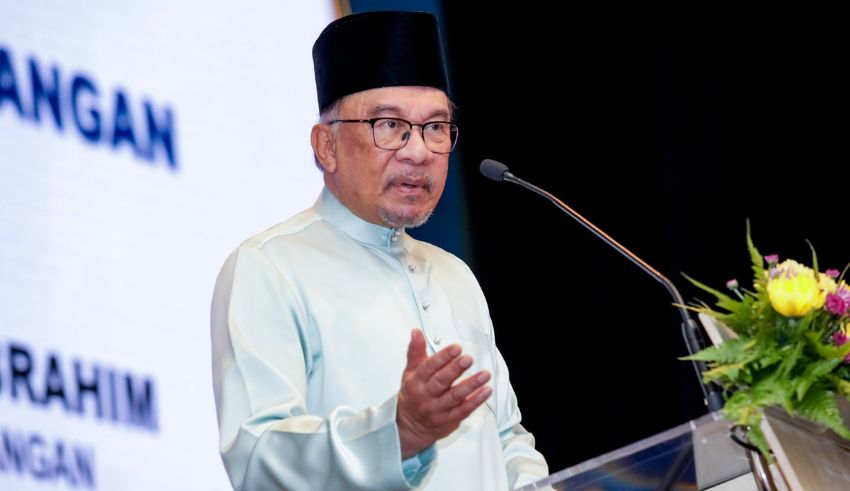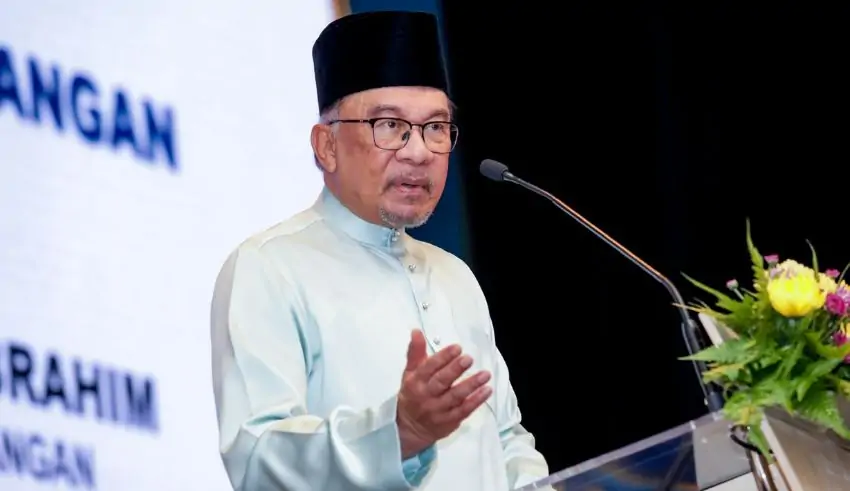

(C) KKMalaysia
Malaysia’s recent membership into the BRICS economic bloc—Brazil, Russia, India, China, and South Africa—has generated heated debate both inside and outside of the nation. Being among the more dynamic economies in Southeast Asia, Malaysia is always seeking ways to raise its profile. Significant financial gains from the BRICS cooperation might help Malaysia’s growth strategy be advanced. But this search raises questions regarding Malaysia’s compatibility with the many political stances and moral standards of the current members of the bloc.
Proponents of Malaysia’s BRICS ambitions cite a number of quite strong arguments. Access to the large markets of other BRICS nations might significantly boost Malaysian exports, therefore encouraging diversification and economic development. Trade and investment opportunities are rather plentiful since the total GDP of BRICS countries represents a significant portion of the global economy. For Malaysian companies in electronics, palm oil, and automotive manufacture as well as others, this more market access is extremely appealing.
Malaysia might appeal more to world investors by forming a powerful economic bloc, therefore increasing capital inflows and supporting economic development. The reputation and legitimacy of BRICS participation might attract foreign companies, help infrastructure development, transfer of technology, and job creation. Moreover, a place at the BRICS table could enable Malaysia’s voice in developing world economic policy be more heard, therefore raising its prominence in global economic debate. Advancing Malaysia’s goals in economic governance and international trade negotiations could rely heavily on this impact.
Notwithstanding these apparent benefits, critics warn against following the BRICS bloc, especially with relation to the political and ethical standards of some of the countries. Several BRICS nations purportedly suffering breaches of human rights and limited political freedom have expressed worries on Malaysia’s commitment to democratic norms. Following countries with questionable human rights records might erode Malaysia’s reputation as a supporter of democratic values and sour its ties elsewhere.
Moreover, BRICS nations may prioritize their own economic goals first, which would run counter to more broad global cooperation projects on issues including climate change and human rights. For environmental issues and Amazon deforestation, for instance, Brazil’s stance could contradict Malaysia’s programs toward sustainable development. Likewise, China’s aggressive economic policies and foreign policy could compromise Malaysia’s sovereignty and economic independence.
Negotiating the probable benefits and drawbacks of BRICS participation, Malaysia has to be cautious. Maintaining democratic values and human rights brings enormous pride for the country; certain BRICS countries’ policies and actions might contradict this. Brining BRICS could force Malaysia to strike a compromise between its moral responsibilities and economic aspirations.
Malaysia has to give much thought to how BRICS membership fits its long-term goals of political stability, economic growth, and social progress. This means assessing the prospective risks and benefits as well as if the moral and political compromises pale against the financial gains. Malaysia’s leadership should also consider public opinion and the points of view of numerous stakeholders, including businesses, civil society organizations, and international partners.
Malaysia has strategic tools to maybe connect her underlying values with her economic goals. Malaysia should advocate progressive policies inside the bloc using its membership, therefore promoting transparency, responsibility, and respect of human rights. Malaysia might maintain its moral position by keeping active on human rights and democratic values while exploiting BRICS membership for specific economic benefits.
Malaysia might assist to heal differences among BRICS members and advance broader global collaboration on common issues. This involves support of sustainable development, climate change action, and inclusive economic growth. Presenting oneself as a mediator and promoter of good change, Malaysia may boost its influence inside BRICS and contribute to build a more fair and equitable society.
Malaysia’s decision on BRICS membership reflects a deliberate and strategic thinking at last. It is quite important to balance any value conflicts with the potential economic gains. Any partnership with BRICS must support the long-term objectives of the country for responsible international citizenship and economic progress. Malaysia’s route ahead should reflect a blend between economic objectives and the preservation of its democratic values, therefore guaranteeing a moral and sustainable approach to world cooperation.
Malaysia’s involvement with BRICS should be guided by a well-defined strategy that gives national interests first priority while preserving world standards and norms. This means continuous communication and cooperation among BRICS members as well as with other countries and international institutions. By applying a pragmatic and moral approach, Malaysia may make use of the benefits of BRICS participation and so preserve its sovereignty, security, and social peace.
At last, Malaysia’s search for BRICS membership presents a great opportunity to raise its global influence and economic status. Still, this road requires for careful maneuvering of difficult political and moral ground. With careful planning and strategic participation, Malaysia might find a balance that advances integrity, stability, and progress in its foreign policy.
Indeed, it is, and it marks a milestone in medical research as it transpired that doctors in China successfully transplanted…
Many fans and industry professionals saw Prithviraj Sukumaran's L2 Empuraan movie release on Thursday as a mixed success that gained…
Filipina teenager Alexandra Eala, 19 year old girl has achieved one of the biggest milestones in WTA season by defeating…
After waiting for a solid six years, Marvel Studios has divulged its next Avengers movie—Avengers: Doomsday. And the cast is…
Through software update Nothing OS 3.1 the company improves functionality of Phone (3a) and Phone (3a) Pro models. Global service…
China's electric vehicle (EV) giant BYD has officially taken over the global EV market, with a whopping revenue of 777…
This website uses cookies.
Read More